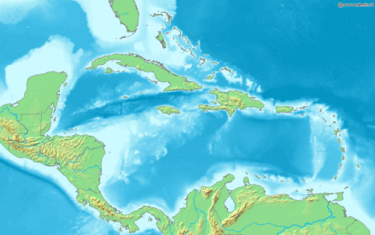Officials at Cuba’s Ministry of Informatics and Communications recently announced that a much-anticipated submarine fiber optic cable linking Venezuela, Cuba, and Jamaica, will be in operation by January of 2011. Although the cable’s 640 gigabytes will increase Cuba’s connectivity 3000-fold, it will not bring greater opportunities for Cuban citizens to access the Internet.
A November article in Granma [es], the national daily newspaper and official organ of the communist party of Cuba, reported that the cable will make it easier to work with video, sound, and large files of all kinds, which are difficult if not impossible to load or send at present. The article quoted an official statement from the Ministry guaranteeing that:
[el cable] reforzará la integración, ampliará el intercambio social y contribuirá a cambiar el curso de las comunicaciones en la región.
But the cable, built by Telecomunicaciones Gran Caribe, the Cuban-Venezuelan telecommunications firm supported chiefly by ALBA (Alianza Bolivariana para los pueblos de Nuestra América), will not bring about the “socialization” of the Internet. An additional note at the end of the article stated [es]:
El cable submarino proporcionará una mayor calidad en las infocomunicaciones, pero no necesariamente significará una extensión de las mismas. La socialización del servicio dependerá más de buscar en las reservas de eficiencia que de la ampliación de la red.
Many Cubans had hoped that the cable would make it easier (and cheaper) to get online. For Cubans who do not have Internet access at their places of work, hotel Internet cafés are often the only option. These centers charge between $7.50 and $12.50 per hour, a prohibitive cost in a nation where the average state salary is $20.
Since plans to build the cable originally took shape in 2006, members of Cuba’s small online community have expressed cautious enthusiasm about its potentially positive impact on Cuban society. Last July, when Cuban news site Cubadebate [es] reported that sounding expeditions for the cable were underway, comments on the site illustrated Cubans’ eagerness for the cable to serve all citizens. Pablo Fierro commented:
Sin duda que internet será más libre a partir de que este funcionando el cable subacuático y los cubanos puedan acceder a él como se merecen…
But the recent news indicates that the cable may not serve all Cubans. Last week, Cuban blogger Yasmín Portales [es] responded to the recent announcement, reasoning that providing home connections and broader public access opportunities was not the interest of the state. Concurrent with the statements of MIC, she explained that the government has always framed the question of Internet access as one of “social necessity,” rather than as a public good, or even a human right.
El discurso del Estado cubano define el uso de la red en tanto interés social….su uso se debe asignar a espacios sociales como centros de educación, asociaciones profesionales, espacios recreativos….De este modo la apuesta por la participación libre y horizontal de la ciudadanía al debate social a través de los recursos digitales se va por el caño. Quienes accedan estarán enajenados de su libertad de navegación a priori, limitados por el criterio de corrección política moral de sus administradores de red…
Portales echoed a recent post by Cuban blogger and legal expert Laritza Diversent, who described the legal framework through which Internet connectivity and access were originally introduced in Cuba in 1996. She wrote that Internet access is limited in order to ensure that
…the information distributed is accurate, that it is obtained [in ways that are consistent] with ethical principles, and that it does not affect the interests or safety of country.
While the cable will improve Internet connectivity and quality for those Cubans who have Internet access, it will not change the status quo of the state’s broader policy on Internet use. In the eyes of the state, the negative social and political implications of making Internet access broadly available to the public continue to necessitate a policy that places strict limits on Cubans’ abilities to access and use the Internet.








5 comments